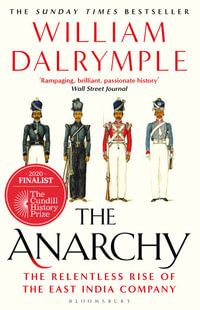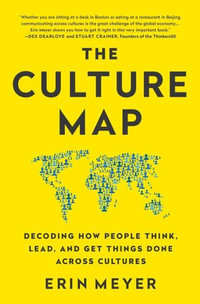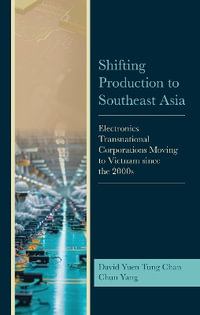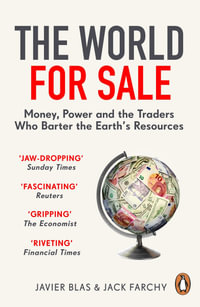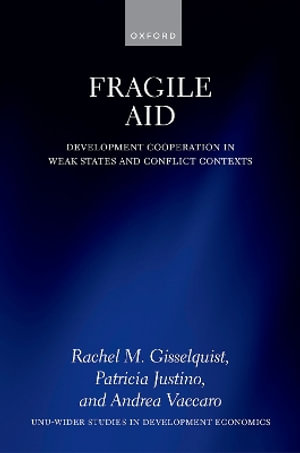
Fragile Aid Development Cooperation in Weak States and Conflict Contexts
Development Cooperation in Weak States and Conflict Contexts
By: Rachel M. Gisselquist, Patricia Justino, Andrea Vaccaro
Hardcover | 1 July 2025
At a Glance
Hardcover
$372.25
Available: 1st July 2025
Preorder. Will ship when available.
ISBN: 9780198960287
ISBN-10: 019896028X
Series: WIDER Studies in Development Economics
Available: 1st July 2025
Format: Hardcover
Language: English
Audience: Professional and Scholarly
Publisher: Oxford University Press UK
Country of Publication: GB
Dimensions (cm): 23.4 x 15.6
Shipping
| Standard Shipping | Express Shipping | |
|---|---|---|
| Metro postcodes: | $9.99 | $14.95 |
| Regional postcodes: | $9.99 | $14.95 |
| Rural postcodes: | $9.99 | $14.95 |
How to return your order
At Booktopia, we offer hassle-free returns in accordance with our returns policy. If you wish to return an item, please get in touch with Booktopia Customer Care.
Additional postage charges may be applicable.
Defective items
If there is a problem with any of the items received for your order then the Booktopia Customer Care team is ready to assist you.
For more info please visit our Help Centre.

